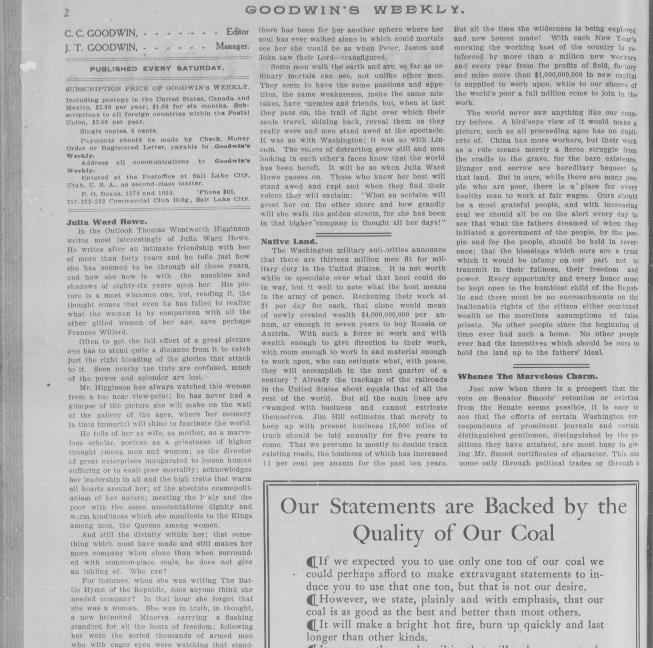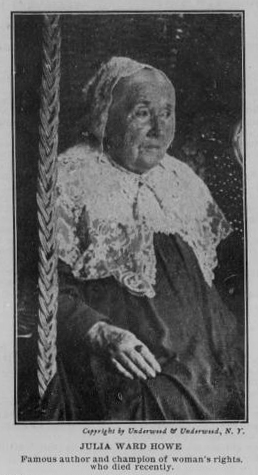|
Moderated by NW Okie! |
Volume 16 , Issue 162014Weekly eZine: (371 subscribers)Subscribe | Unsubscribe Using Desktop... |
Julia Ward Howe (27 May 1819-17 Oct 1910)

It was in the Goodwin's Weekly, dated 2 February 1907, page 2, that Thomas Wentworth Higginson wrote most interestingly of Julia Ward Howe. Higginson had an intimate friendship with Julia Ward Howe for some forty years, as he tells just how she has seemed to be through all those years.
 In 1907, Julia Ward Howe was in the sunshine and shadows of eighty-six years of age.
In 1907, Julia Ward Howe was in the sunshine and shadows of eighty-six years of age.
Higginson tells of Julia as wife, mother marvelous scholar, poetess. He also tells of Julia as the director of great enterprises inaugurated to lessen human suffering or to exalt poor mortality. Higginson acknowledged Julia's leadership in all and the high traits that warm all hearts around her. Julia had an absolute cosmopolitanism of her nature. Julia met the lowly and the poor with the same unostentatious dignity and warm kindliness which manifested to the Kings among men, the Queens among women.
Julia Ward Howe wrote The Battle Hymn of the Republic. In that hour she forgot that she was a woman. She was in truth, a new helmeted Minerva carrying a flashing standard for all the hosts of freedom. Following Julia were the series thousands of armed men who were watching that standard and to Julia's soul all the air was filled with the music of the hymn that was to be, the melody of the song of the millions whose emancipation was near, and the rhythm of fetters breaking and falling from the wrists and necks of former slaves.
They wrote back in 1907, "If the result has not yet been what she hoped it would be that is not her fault. It has been because our nation has lacked the wisdom, the gentleness, the firmness, the integrity, the patience and the sense of justice to do right."
| View or Add Comments (0 Comments)
| Receive
updates ( subscribers) |
Unsubscribe
| © . Linda Mcgill Wagner - began © 1999 Contact Me | |
